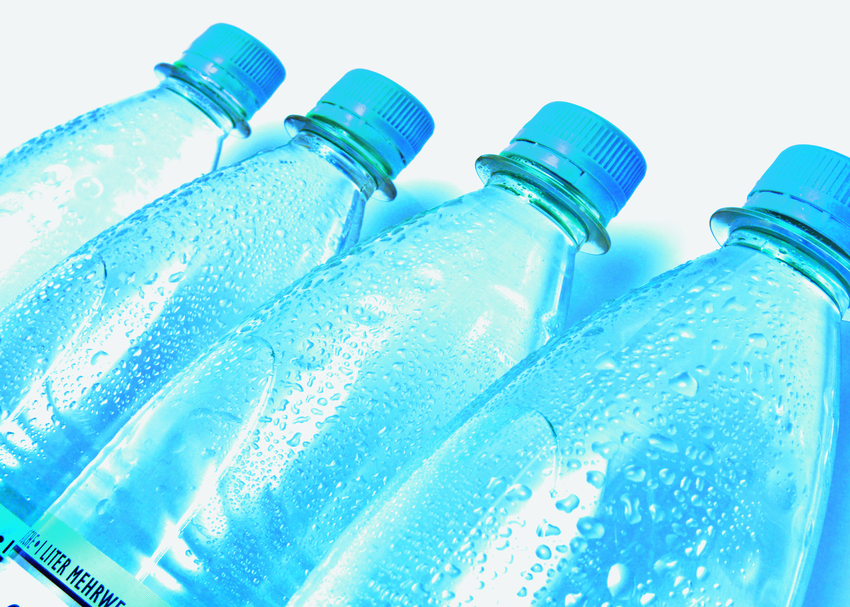Upcycling, Plastics
Upcycling of PET Bottles: New Ideas for Resource Cycles in Germany
The new research project, UpcyclePET, is developing an innovative process for high quality cycle utilization of polyethylene terephthalate (PET). This research project enables the recovery of PET waste from plastic bottles to be used in high-grade industrial applications, and it targets to reduce the use of new polyamide-based plastic parts. The project team consists of the company EASICOMP GmbH, the Fraunhofer Institute for Structural Durability and System Reliability LBF, and the Institute for Applied Ecology (Öko-Institut e.V.).
Upcycling Instead of Recycling
Dr.-Ing. Tapio Harmia, CEO of EASICOMP, explains: “We would not like to use recycled PET just for plastic bottles, but would also like to use it in the production of durable and long lasting products.” “This idea is called upcycling." Dr. Volker Strubel, coordinator of the project, adds: “With this upcycling we are creating lightweight components out of fiber-reinforced recycled PET, and are thus reducing the use of glass fiber reinforced polyamides typically applied in the production of automotive parts, e.g. engine mounts or cross members.”
For the project UpcyclePET the partners are drawing on knowledge from the material and process development, in order to create an integrated manufacturing process for the production of fiber-reinforced PET components. A pultrusion process is used in order to reinforce the PET with long glass fibers and thus to upgrade PET technically. This kind of approach combines the mechanical advantages of the very strong long glass fibers with the special properties of PET. The lower swelling capacity and good dimensional stability are part of these properties. “This approach combines two processing steps that are separated in modern practice and customizes the properties of the recycling PET by chemical modifications and suitable addition of additives,” explains Dr. Frank Schönberger from Fraunhofer LBF.
The production is cost effective, since all necessary processing steps are completed in one manufacturing plant. The project team uses a lightweight component from the automotive industry in order to evaluate the potential for technical replacement of the materials and demonstrates possible ecological as well as economic advantages. Dr. Andreas R. Köhler from Öko-Institut explains: “We are expecting an innovation boost for high quality plastics recycling in Germany from the UpcyclePET project. Upcyling of PET waste has significant potential as an environmentally friendly solution, since it facilitates the creation of long lasting products, while also serving as a replacement for plastics with much higher greenhouse gas emissions.”
Background: Recyling of PET Bottles
The trend of recycling polyethylene terephthalate (PET) from plastic bottle waste has reached a high level in Germany. Thanks to the deposit system implemented in Germany, there have been more than 97% of PET bottles recycled in 2015. After their lifecycle as drinking water bottle, they are valuable sources of PET, which is used for production of new PET bottles, and especially in Asia, it is also processed into textiles. However, this waste can also be used as a particularly high-quality recycling material in order to open up possibilities for long lasting technical applications beyond the packaging and textile industries ("upcycling"). This approach is now gaining importance, since China released a ban on the import of plastic waste at the beginning of this year.
About the Project Partners
EASICOMP GmbH is a leader in the production of long glass fiber-reinforced thermoplastics through pultrusion processes and takes responsibility for the large-scale implementation of the long glass fiber reinforced UpcyclePET. Fraunhofer LBF leverages its comprehensive expertise in plastic additives, tailor-made formulations and processing of engineering plastics to meet the specific material and process requirements in this project. Öko-Institut e.V. conducts ecological and economic analyses regarding the effects on sustainability (resources, energy and reduction of CO2 emissions). This project is financially supported by the German Federal Ministry of Education and Research (BMBF-Bundesministerium für Bildung und Forschung) under the support code 033RK052C within the program "KMU Innovativ“.
Last modified:
 Fraunhofer Institute for Structural Durability and System Reliability LBF
Fraunhofer Institute for Structural Durability and System Reliability LBF
